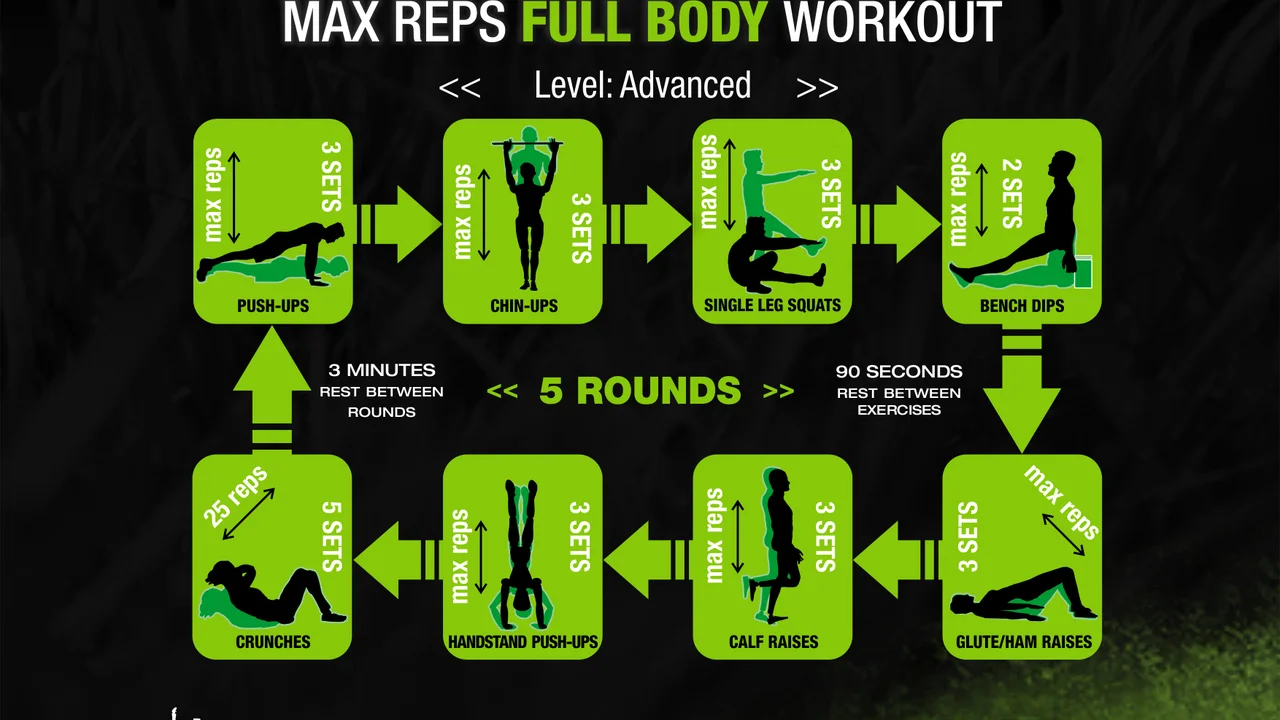Carbohydrates for Street Workout_ Fueling Your Body

Optimizing protein intake is crucial for street workout athletes to support muscle growth, repair, and overall performance. This comprehensive guide will delve into the intricacies of protein requirements, sources, timing, and supplementation for street workout enthusiasts, helping you maximize your training efforts and achieve your fitness goals.
Understanding Protein and Its Role in Street Workout Performance
Protein is an essential macronutrient composed of amino acids, the building blocks of our bodies. It plays a vital role in numerous physiological processes, including:
- Muscle Growth and Repair: Protein provides the necessary amino acids to repair damaged muscle fibers and build new muscle tissue, crucial for adapting to the demands of street workout training.
- Enzyme and Hormone Production: Enzymes catalyze biochemical reactions, and hormones regulate various bodily functions, both of which rely on protein for their synthesis.
- Immune Function: Antibodies, which defend against infections, are proteins. Adequate protein intake supports a robust immune system, vital for athletes who push their bodies to the limit.
- Energy Production: While not the primary energy source, protein can be broken down into glucose to provide energy when carbohydrate stores are depleted.
For street workout athletes, the demands on these processes are significantly higher than for sedentary individuals. The intense physical activity involved in street workout requires increased protein intake to support muscle recovery, growth, and overall performance.
Determining Your Optimal Protein Intake for Street Workout
The recommended daily allowance (RDA) for protein is 0.8 grams per kilogram of body weight for sedentary adults. However, this recommendation is insufficient for athletes, especially those engaged in high-intensity training like street workout. Factors influencing protein requirements include:
- Training Intensity and Volume: Higher intensity and volume training require more protein to repair and rebuild muscle tissue.
- Body Weight and Composition: Individuals with more muscle mass require more protein.
- Training Goals: Those aiming to build muscle mass need higher protein intake than those focusing on maintenance.
- Overall Caloric Intake: Adequate caloric intake is essential for protein to be utilized for muscle building rather than energy.
For street workout athletes, a protein intake of 1.6 to 2.2 grams per kilogram of body weight per day is generally recommended. This range provides sufficient protein to support muscle growth, repair, and recovery. For example, a 70kg athlete would need between 112 and 154 grams of protein per day.
Calculating Your Personalized Protein Needs for Calisthenics and Bodyweight Training
To calculate your personalized protein needs, consider the following steps:
- Determine your body weight in kilograms: Divide your weight in pounds by 2.2.
- Multiply your body weight in kilograms by 1.6 to 2.2: This will give you your daily protein intake range in grams.
- Adjust based on your training intensity and goals: If you're training intensely and aiming to build muscle, aim for the higher end of the range. If you're focusing on maintenance, the lower end may suffice.
It's crucial to distribute your protein intake throughout the day to optimize muscle protein synthesis. Aim for 20-40 grams of protein per meal, spread evenly across 4-6 meals.
High-Quality Protein Sources for Street Workout Athletes
The quality of protein sources is as important as the quantity. High-quality protein sources contain all nine essential amino acids, which the body cannot produce on its own. These sources also have a high digestibility and bioavailability, meaning the body can easily absorb and utilize the amino acids.
Animal-Based Protein Sources
- Lean Meats: Chicken breast, turkey breast, lean beef, and pork are excellent sources of complete protein. They are also rich in essential nutrients like iron and zinc.
- Fish: Salmon, tuna, cod, and other fish are rich in protein and omega-3 fatty acids, which have anti-inflammatory benefits.
- Eggs: Eggs are a complete protein source and are highly versatile. They are also a good source of choline, important for brain health.
- Dairy Products: Milk, yogurt, and cheese are good sources of protein and calcium. Opt for low-fat or non-fat varieties to minimize saturated fat intake.
Plant-Based Protein Sources
- Legumes: Beans, lentils, and peas are excellent sources of plant-based protein and fiber.
- Tofu and Tempeh: These soy-based products are complete protein sources and can be used in various dishes.
- Quinoa: Quinoa is a complete protein grain that is also gluten-free.
- Nuts and Seeds: Almonds, walnuts, chia seeds, and flaxseeds are good sources of protein and healthy fats.
Combining different plant-based protein sources can ensure you get all the essential amino acids. For example, combining legumes with grains provides a complete protein profile.
Protein Timing for Optimal Muscle Recovery and Growth in Street Workout
Protein timing refers to strategically consuming protein around your workouts to maximize muscle protein synthesis and recovery. The most crucial times for protein intake are:
Pre-Workout Protein Intake
Consuming protein before your workout provides your body with amino acids to fuel your muscles and prevent muscle breakdown. Aim for 20-30 grams of protein 1-2 hours before your workout. Good pre-workout protein options include:
- Protein Smoothie: Blend protein powder with fruits, vegetables, and water or milk.
- Greek Yogurt with Berries: Provides protein and carbohydrates for sustained energy.
- Chicken Breast with Sweet Potato: A solid meal option for longer workouts.
Post-Workout Protein Intake
Consuming protein immediately after your workout is crucial for repairing damaged muscle fibers and stimulating muscle growth. Aim for 20-40 grams of protein within 30-60 minutes after your workout. Good post-workout protein options include:
- Whey Protein Shake: Whey protein is quickly absorbed, making it an ideal post-workout choice.
- Casein Protein Shake: Casein protein is slowly absorbed, providing a sustained release of amino acids.
- Chicken Breast with Rice: A solid meal option for replenishing glycogen stores and providing protein.
Protein Before Bed for Enhanced Recovery During Sleep
Consuming a slow-digesting protein source like casein before bed can help prevent muscle breakdown and promote muscle recovery during sleep. Aim for 30-40 grams of casein protein before bed.
Protein Supplements for Street Workout Athletes Enhancing Performance and Recovery
Protein supplements can be a convenient way to meet your protein needs, especially if you have difficulty consuming enough protein through whole foods. Common protein supplements include:
Whey Protein
Whey protein is a fast-digesting protein derived from milk. It is highly effective for stimulating muscle protein synthesis and is a popular choice for post-workout recovery. There are several types of whey protein:
- Whey Protein Concentrate: Contains 70-80% protein and some lactose and fat.
- Whey Protein Isolate: Contains 90% or more protein and is low in lactose and fat.
- Whey Protein Hydrolysate: Pre-digested whey protein that is absorbed very quickly.
Product Recommendation: Optimum Nutrition Gold Standard 100% Whey
Use Case: Post-workout recovery, meal replacement, increasing daily protein intake.
Product Details: This is a widely popular and trusted whey protein blend. It contains whey protein isolate, concentrate, and peptides. It mixes easily and comes in a variety of flavors.
Pricing: Approximately $30-$60 per 2-5 pound container, depending on the retailer and promotions.
Casein Protein
Casein protein is a slow-digesting protein derived from milk. It provides a sustained release of amino acids, making it ideal for pre-bedtime consumption to prevent muscle breakdown during sleep.
Product Recommendation: Optimum Nutrition Gold Standard 100% Casein
Use Case: Pre-bedtime protein source, sustained amino acid release.
Product Details: This casein protein is known for its slow digestion and creamy texture. It helps to keep you feeling full and supports muscle recovery overnight.
Pricing: Approximately $30-$50 per 2-4 pound container, depending on the retailer and promotions.
Plant-Based Protein Blends
Plant-based protein blends are made from a combination of plant-based protein sources, such as pea protein, rice protein, and soy protein. They are a good option for vegans and vegetarians who need to supplement their protein intake.
Product Recommendation: Garden of Life Sport Organic Plant-Based Protein
Use Case: Vegan protein source, post-workout recovery, meal replacement.
Product Details: This plant-based protein blend is made from organic ingredients and is free of gluten, soy, and dairy. It contains a complete amino acid profile and is fortified with branched-chain amino acids (BCAAs).
Pricing: Approximately $35-$55 per 2-pound container, depending on the retailer and promotions.
Creatine Monohydrate
While not a protein supplement, creatine monohydrate is a popular supplement among athletes for enhancing strength and power output. It helps to increase muscle creatine stores, which can improve performance in high-intensity activities like street workout.
Product Recommendation: Optimum Nutrition Micronized Creatine Monohydrate
Use Case: Enhancing strength and power output, improving muscle recovery.
Product Details: This creatine monohydrate is micronized for better absorption. It is unflavored and can be easily mixed with water or other beverages.
Pricing: Approximately $15-$30 per 300-gram container, depending on the retailer and promotions.
Comparing Protein Supplements for Street Workout Needs
Choosing the right protein supplement depends on your individual needs and preferences. Here's a comparison of the different types of protein supplements:
| Supplement Type | Digestion Rate | Benefits | Drawbacks | Best Use Case |
|---|---|---|---|---|
| Whey Protein | Fast | Rapidly absorbed, stimulates muscle protein synthesis | May cause digestive issues in some individuals | Post-workout recovery |
| Casein Protein | Slow | Sustained amino acid release, prevents muscle breakdown | May cause digestive issues in some individuals | Pre-bedtime consumption |
| Plant-Based Protein | Variable | Vegan-friendly, often rich in fiber | May not contain all essential amino acids in sufficient quantities | Vegan or vegetarian athletes |
| Creatine Monohydrate | N/A | Enhances strength and power output | May cause water retention in some individuals | Improving strength and power |
Potential Side Effects of Excessive Protein Intake for Bodyweight Athletes
While protein is essential, excessive protein intake can have potential side effects:
- Digestive Issues: High protein intake can lead to constipation, bloating, and gas.
- Kidney Strain: In individuals with pre-existing kidney problems, high protein intake can put extra strain on the kidneys.
- Dehydration: Protein metabolism requires water, so high protein intake can lead to dehydration.
- Calcium Loss: Some studies suggest that high protein intake can lead to increased calcium excretion.
It's essential to consume protein in moderation and drink plenty of water to mitigate these potential side effects. Consult with a healthcare professional or registered dietitian if you have any concerns.
Practical Tips for Incorporating Enough Protein into Your Street Workout Diet
Here are some practical tips for incorporating enough protein into your street workout diet:
- Plan your meals in advance: This will help you ensure you're getting enough protein at each meal.
- Include protein in every meal: Aim for 20-40 grams of protein per meal.
- Snack on protein-rich foods: Greek yogurt, nuts, and seeds are good protein-rich snack options.
- Use protein supplements strategically: Protein supplements can be a convenient way to meet your protein needs.
- Track your protein intake: Use a food tracking app to monitor your protein intake and ensure you're meeting your goals.
The Importance of Hydration Alongside Protein Intake for Calisthenics Athletes
Hydration is crucial for overall health and performance, especially for athletes. Water plays a vital role in numerous physiological processes, including:
- Nutrient Transport: Water transports nutrients, including amino acids from protein, to cells.
- Waste Removal: Water helps remove waste products from the body.
- Temperature Regulation: Water helps regulate body temperature during exercise.
- Joint Lubrication: Water lubricates joints, reducing the risk of injury.
Dehydration can impair performance, increase the risk of injury, and lead to fatigue. Aim to drink plenty of water throughout the day, especially before, during, and after your workouts. A good rule of thumb is to drink half your body weight in ounces of water per day. For example, a 150-pound person should drink 75 ounces of water per day.
Listening to Your Body and Adjusting Protein Intake for Optimal Results in Street Workout
Ultimately, the best way to determine your optimal protein intake is to listen to your body and adjust based on your individual needs and responses. Pay attention to how you feel, how well you recover, and how your performance is improving. If you're not seeing the results you want, consider adjusting your protein intake or other aspects of your diet and training. It's always a good idea to consult with a healthcare professional or registered dietitian for personalized guidance.
Remember, nutrition is a crucial component of street workout success. By optimizing your protein intake, you can support muscle growth, repair, and overall performance, helping you achieve your fitness goals and unlock your full potential.
:max_bytes(150000):strip_icc()/277019-baked-pork-chops-with-cream-of-mushroom-soup-DDMFS-beauty-4x3-BG-7505-5762b731cf30447d9cbbbbbf387beafa.jpg)






